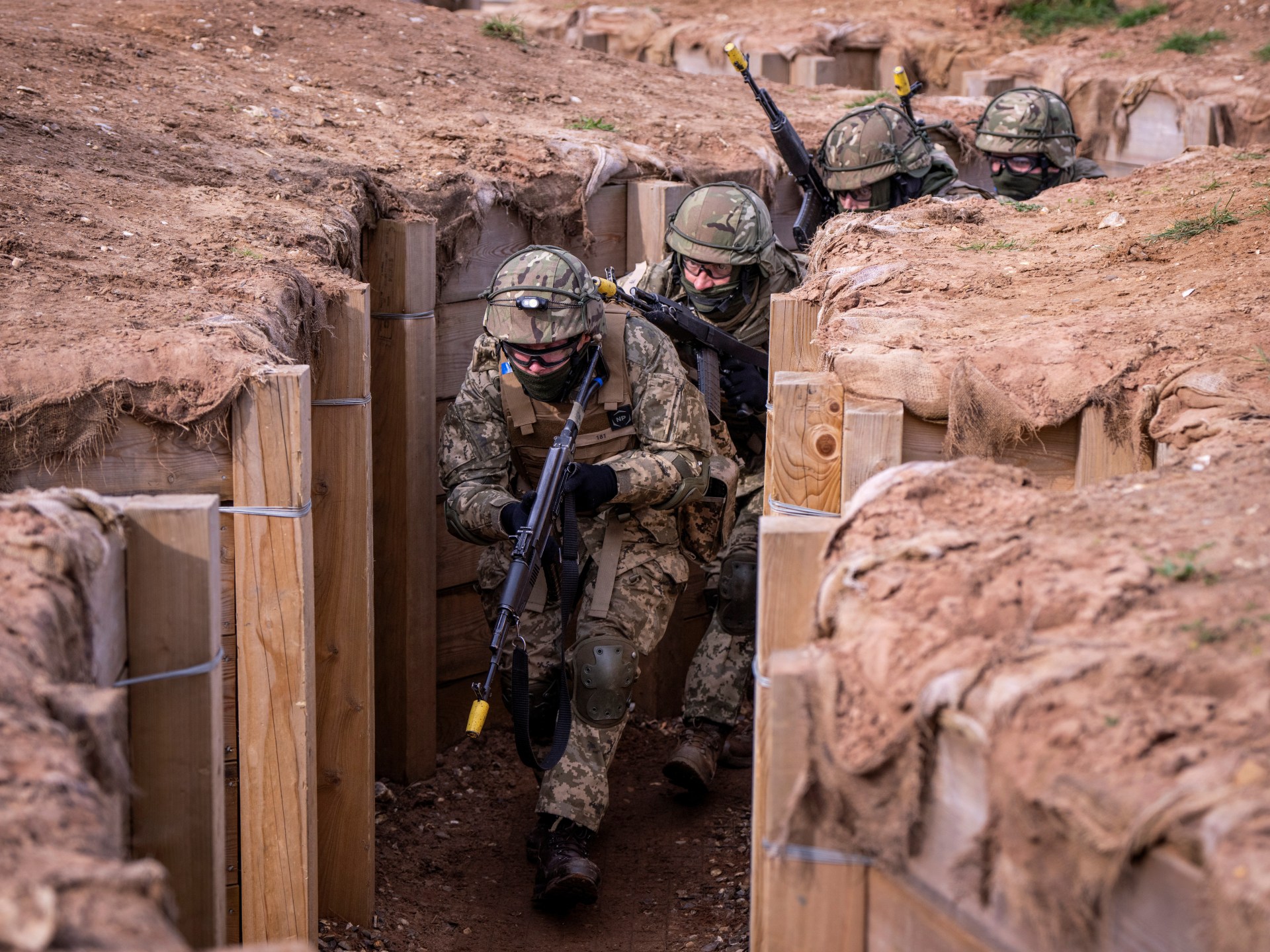Flooding death toll rises to 21 in Central Europe as more areas on alert | Floods News
Volunteers and emergency workers have raced to secure river banks in the historic Polish city of Wroclaw as residents elsewhere in Central Europe have tallied the cost of floods caused by Storm Boris, which have wreaked havoc and killed at least 21 people.
The deluge has left a trail of destruction from Romania to Poland. While waters were receding in many areas, others were nervously waiting on Tuesday for rivers to burst their banks.
Areas on the Czech-Polish border were among the worst hit since the weekend as gushing, debris-filled rivers devastated historic towns, collapsed bridges and destroyed houses.
Flooding has killed seven people in Romania, where waters have receded since the weekend. Six were killed in Poland, five in Austria and three in the Czech Republic. Tens of thousands of Czech and Polish households remained without power or freshwater.
In Wroclaw, Poland’s third largest city, people worked to secure river banks in preparation for the Oder and Bystrzyca rivers cresting.
In a northern suburb, 44-year-old IT programmer Michal Nakiewicz was one of dozens of volunteers helping emergency services pile up sandbags on the bank of the Bystrzyca.
“I saw that both parents and children were helping to pour sand. I even saw 5-, 6-year-olds, so quite a gathering,” he told the Reuters news agency. “I think that there may not be enough hands in the services, so every pair of hands helps.”
The city’s zoo called for volunteers to help pack sandbags to protect animal enclosures, and employees and volunteers began to move some of the 450,000 books from the city’s main church archive to higher floors of the Archdiocesan Archives building.
In Lewin Brzeski, about 60km (37 miles) south of Wroclaw, floodwaters had already arrived and continued to rise.
Residents waded through waist-high water in some places while others moved through streets on rafts as emergency services took them to safety.
“I live down there. There is about 1 metre 10 centimetres [39.8 inches], 1 metre 20 centimetres [40.2 inches] of water in the courtyard, and it is rising all the time,” Marek Karas, 63, said, adding that he thought the authorities had not done enough to protect the area from flooding since a severe deluge in 1997.
“In 27 years, they haven’t done much in this section, all those who governed up to now. There are not enough storage reservoirs.”
Polish Minister for Funds and Regional Development Katarzyna Pelczynska-Nalecz said 1.5 billion zlotys ($390m) from Poland’s European Union funds would be redirected to reconstruction with another 3.5 billion zlotys ($910m) potentially allocated to building embankments, reservoirs and dams.
In the neighbouring Czech Republic, Governor Josef Belica said 15,000 people had been evacuated in the northeastern Moravia-Silesia region, one of two badly affected. Meanwhile, helicopters were delivering aid to areas cut off by floodwaters.
Michal Marianek, director of a nursing facility in the regional capital, Ostrava, told Reuters that staff had moved residents to a higher floor for two nights and cared for them without electricity.
“In those combat conditions, we managed provisional menus and so on,” he said, adding residents were now being moved to other homes.
In nearby Trebovice, restaurant owner Veronika Jahodova said her establishment was seriously damaged.
“The flood, the waves came twice, and basically everything that was inside we found in the park a few blocks away.”
In Hungary in the towns of Visegrad and Szentendre, north of Budapest, authorities have put mobile dams in place to limit flooding from the Danube.
Budapest is preparing for waters cresting near record levels and has closed Margaret Island, a recreational area with hotels and restaurants.
In Slovakia, Environment Minister Tomas Taraba said the Danube had peaked at nearly 10 metres (33ft) overnight and water levels would now slowly fall.
He said damage caused by floods throughout the country was estimated at 20 million euros ($22.2m).
Experts said climate change caused by greenhouse gas emissions generated by human activities is increasing the frequency and intensity of extreme weather, such as torrential rains and floods.
Andreas von Weissenberg of the International Federation of Red Cross and Red Crescent Societies said studies to determine whether climate change is linked to these events are expected in the coming months.
He added that the floods have been “branded as historic” but warned that “climate change has a way of moving the goalposts”.
Check out our Latest News and Follow us at Facebook
Original Source







